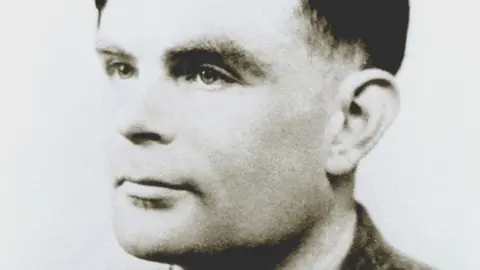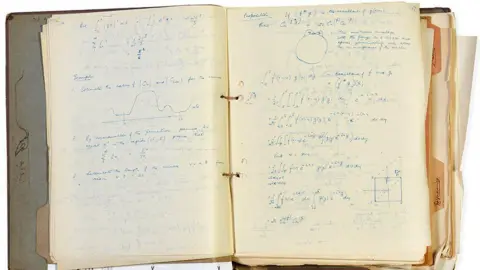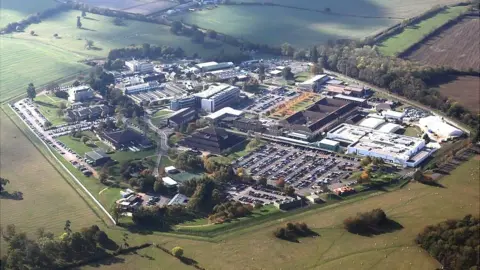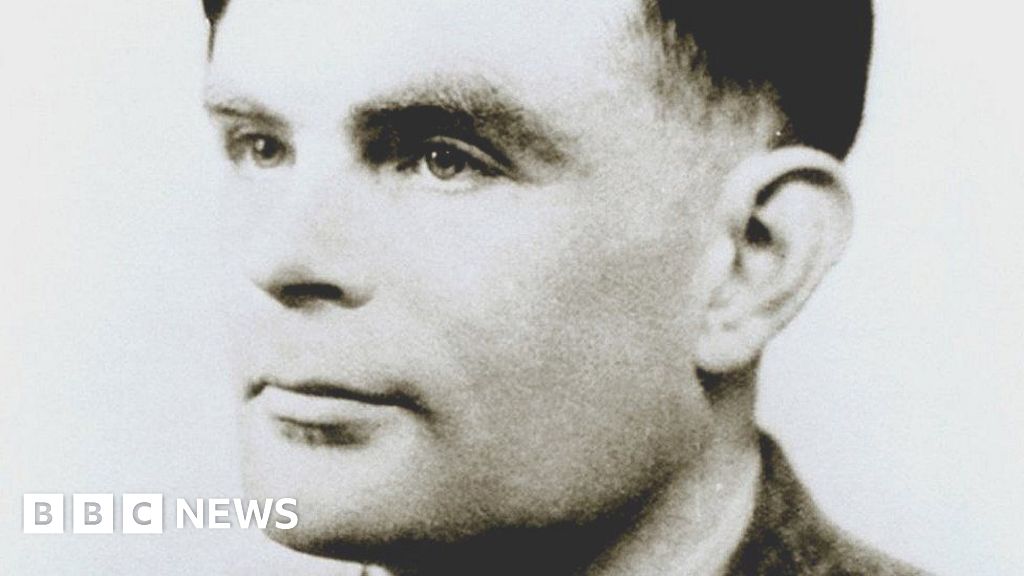 Science Photo Library
Science Photo LibraryAn export bar has been placed on Alan Turing’s unpublished World War Two papers from a high-profile military project.
The intervention meant work from the Delilah project, which developed a portable encryption system for use in military operations, cannot leave the country.
Turing started the work at the highly secretive government communications centre in Hanslope Park, near Milton Keynes, in 1943.
The papers have been valued at £397,680 and are at risk of leaving the UK unless a domestic buyer is found to acquire them.
The work of Turing, who died in June 1954, helped to protect military secrets in the field when the Delilah machine was complete shortly after the end of World War Two.
He was later awarded an OBE for his work and remains recognised for forming the foundations of computer science as we know it.
 UK government
UK governmentThe papers consist of two bound notebooks and six separate gatherings of loose sheets.
They comprise the notes of Turing, from 1912-54, and Donald Bayley, from 1921-2020, and relate to the Delilah project.
Unpublished evidence of Turing’s work has rarely survived, with the mathematician not usually keeping research notes.
The papers reveal some of his most inventive, secret, and overlooked work, the government said.
It announced enforcement of the export bar on Friday after intervention from the arts minister Sir Chris Bryant.
 Alamy
Alamy“The Delilah project papers offer unique insights into the extraordinary mind of Alan Turing,” he said.
“It is right that a UK buyer has the opportunity to purchase these papers to give people the opportunity to continue to study and appreciate his work as an important part of our national story.”
The minister’s decision followed the advice of the Reviewing Committee on the Export of Works of Art and Objects of Cultural Interest.
The committee found the papers met the first and third Waverley criteria for their outstanding connection with UK history and national life.


